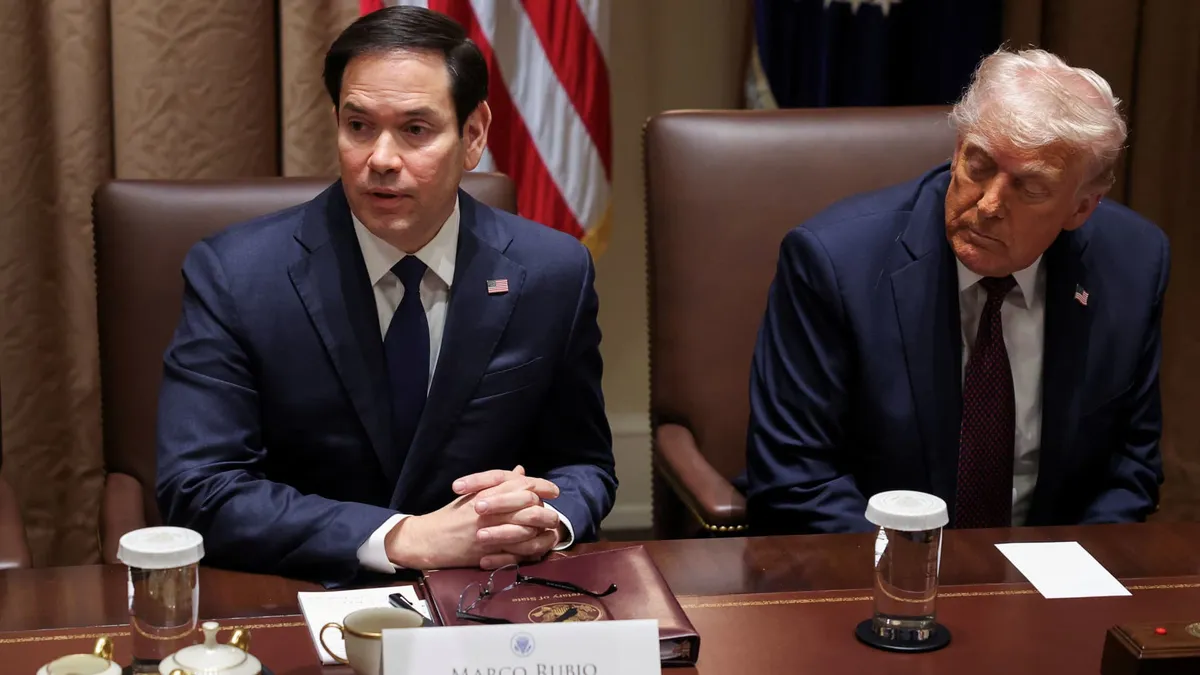
The Trump administration is poised to implement significant reforms to the U.S. State Department, as indicated by a draft executive order obtained by CNBC. This sweeping reorganization aims to reshape the nation’s diplomatic service and streamline operations within the department. The 16-page draft, although undated, appears ready for President Donald Trump's signature and could lead to considerable alterations in how American diplomacy is conducted.
If enacted, the order would lead to the closure of several American embassies across Southern Africa and the elimination of crucial bureaus that handle matters related to democracy, human rights, and international organizations like the United Nations. This radical shift reflects a commitment to an America First Strategic Doctrine, which prioritizes the Executive Branch's objectives and seeks to cut waste, fraud, and abuse within the department.
The draft order proposes a consolidation of regional bureaus worldwide, streamlining the diplomatic mission delivery. Under the new plan, current regional offices would be grouped into four main corps: Eurasia, encompassing Europe, Russia, and Central Asia; the Mid-East, which includes Arab nations, Iran, Pakistan, and Afghanistan; Latin America, covering Central America, South America, and the Caribbean; and the Indo-Pacific, which includes East and Southeast Asia, India, Bangladesh, Sri Lanka, Nepal, Bhutan, and the Maldives.
Significant cuts to the U.S. diplomatic presence in Canada are also outlined in the draft. The operations in Canada would be streamlined under a reduced team designated as the North American Affairs Office, a move that would significantly alter the existing framework for U.S.-Canada relations. The White House has yet to respond to inquiries regarding this draft order, which was initially reported by The New York Times.
In addition to the structural changes, the draft order calls for the termination of various offices and positions within the State Department that concentrate on climate change, women’s issues, democracy, human rights, migration, and criminal justice. This reflects a broader shift in diplomatic focus away from these critical issues, aligning with the administration's overall foreign policy goals.
The draft order also outlines fundamental modifications to the hiring practices within the State Department. The traditional Foreign Service Officer Test would be abolished, replaced by an evaluation process that considers candidates’ alignment with the president's foreign policy vision. This move is intended to ensure that the department is staffed by individuals who support the administration's diplomatic objectives.
According to the draft, the complete structural reorganization and transition within the State Department should be finalized by October 1. The order includes provisions for current foreign services officers or civil service personnel who do not wish to participate in the new regional structure. These individuals may opt for a one-time buyout and transition program, which is available until September 30.
As the Trump administration prepares to unveil these significant changes, the implications for U.S. diplomacy and international relations remain to be seen, inviting both scrutiny and discussion among policymakers and the public alike.